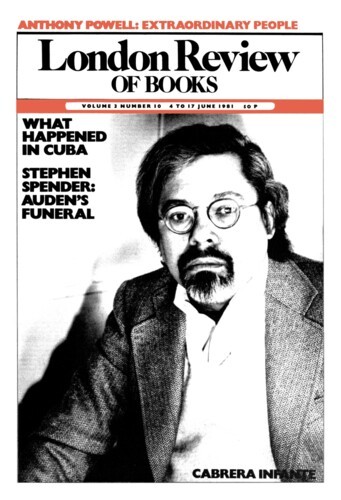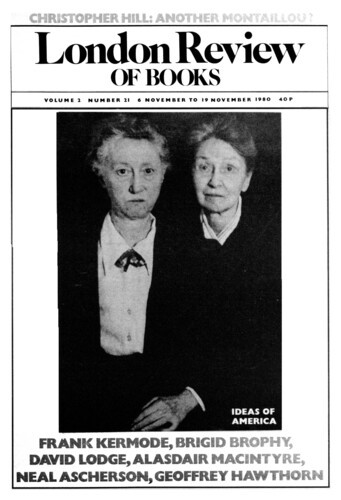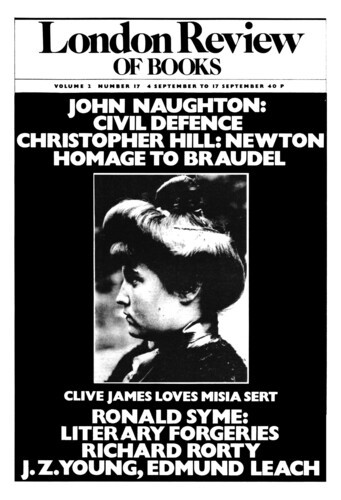A Catholic Novel
David Lodge, 4 June 1981
In late August 1964, at the age of 29, I embarked at Southampton on the Queen Mary, bound for New York with my wife Mary, our two children, five suitcases and the first chapter of what I hoped would be my third published novel. I was beginning a year’s leave of absence from my post as lecturer in English Literature at the University of Birmingham to take up a Harkness Commonwealth Fellowship in America. This marvellous foundation allows the lucky recipients of its Fellowships to pursue their own programmes of study wherever they like in the United States, requiring them only to spend at least three months travelling, and providing them with a hired car in which to do so. We settled first at Brown University, in Providence, Rhode Island, where I studied American Literature; before we set off, in March 1965, in our brand new Chevrolet Bel Air, on the long, leisurely journey westward that would eventually take us to San Francisco, I had finished The British Museum is failing down and had it accepted.



